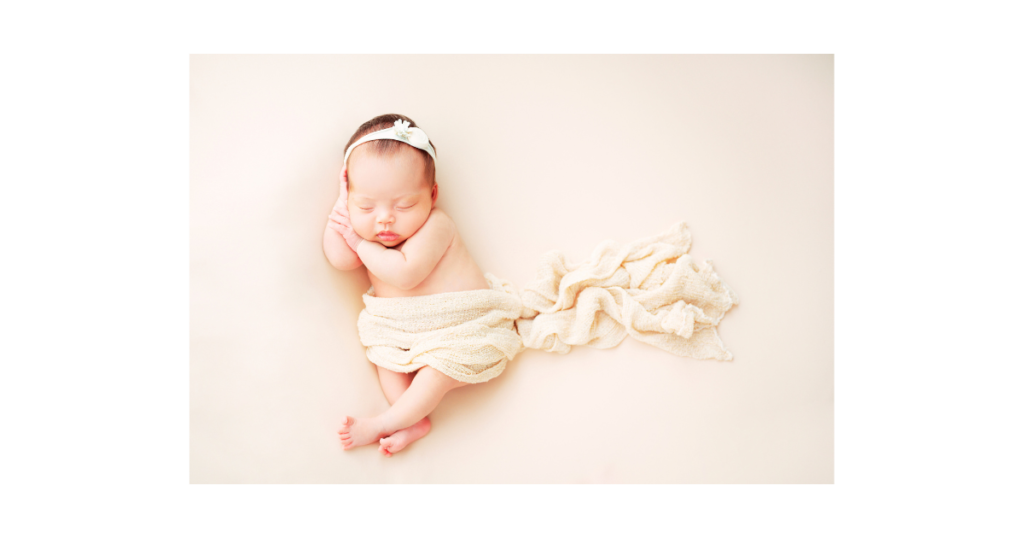Welcoming a newborn into the world is a magical experience, but it also comes with its own set of challenges—one of which is caring for your little one’s delicate skin. If you’ve noticed dry patches or peeling skin on your newborn’s face, you’re not alone. Most babies experience some dryness as their skin adjusts to life outside the womb. Let’s dive into why this happens and how to care for your baby’s sensitive skin.
What Causes Dry Skin on Newborns?

Newborns are born with a protective layer called vernix caseosa, which keeps their skin moisturized while they’re in the womb. Once they’re born and exposed to the air, their skin naturally starts to peel as they shed this layer. This peeling can sometimes cause dry skin, particularly on the face.
Environmental factors like dry air, especially during winter, can exacerbate the issue. Heaters in homes, while cozy, can strip moisture from the air, leaving your baby’s skin prone to dryness. Additionally, their skin is still learning to retain natural oils, making it more vulnerable to moisture loss.
Identifying Dry Skin on Your Baby’s Face
You might notice peeling skin, flaky patches, or even a little redness on your baby’s cheeks or forehead. Don’t panic—this is often normal. Other common signs include:
- Cradle cap: Dry, scaly patches on the scalp.
- Dry patches: These may appear on the face or other areas exposed to air.
- Itchy skin or red spots: This could indicate conditions like eczema or atopic dermatitis.
While these symptoms are often harmless, it’s important to know when to consult your pediatrician. If the dryness is persistent, accompanied by severe redness or swelling, or doesn’t improve with care, a physical examination may be necessary.
How to Relieve and Prevent Dry Skin
1. Gentle Skincare for Baby’s Sensitive Skin
Keeping your baby’s skin soft and hydrated starts with bath time. Use lukewarm water—hot water can strip away natural oils. Limit baths to about 10 minutes to avoid excessive dryness, and skip bubble baths, which can be harsh on a baby’s delicate skin.
Opt for a soap-free, fragrance-free cleanser specifically designed for babies. After bathing, gently pat (don’t rub!) your baby’s skin dry to preserve its natural moisture.
2. Moisturizing Is Key
Within minutes of bath time, apply a gentle moisturizing cream or petroleum jelly to lock in moisture. Focus on areas prone to dryness, like the cheeks and forehead. Look for products that are free of harsh chemicals and approved by organizations like the National Eczema Association.
If you prefer a natural remedy, a thin layer of breast milk can work wonders on irritated skin. It contains natural antibodies and fats that help soothe dryness and promote healing.
3. Create a Baby-Friendly Environment
Dry air in your home can make your baby’s skin even drier. Using a cool mist humidifier in your baby’s room helps maintain the air’s moisture level, especially during the winter months. Avoid overdressing your baby—overheating can also contribute to dryness and irritation.
Natural Remedies for Dry Skin
If your baby’s face is particularly dry, you might consider trying natural oils like coconut or almond oil. These oils can help restore moisture without the risk of harmful chemicals. Just be sure to do a small patch test first to ensure your baby isn’t allergic.
Breast milk is another effective remedy. Gently apply a few drops to the affected area and let it air dry. It’s an easy, natural way to hydrate your baby’s skin while reducing redness.
Nutrition and Hydration: Keeping Skin Healthy
While babies under six months don’t need water, keeping them hydrated through breastfeeding or formula is vital. Hydration plays a big role in maintaining the skin barrier, which protects against dryness and irritation.
For older babies starting solids, foods rich in omega-3 fatty acids, like avocado or salmon, can support skin health. If you’re breastfeeding, including these in your diet can also pass on benefits to your baby.
When to Be Concerned
Most cases of newborn dry skin resolve on their own with gentle care, but persistent dryness might indicate an underlying condition like eczema or a reaction to a product. If the dryness worsens, spreads, or appears infected, it’s time to seek medical advice.
Nutritional Value of the Remedies
Natural moisturizers like coconut oil are rich in medium-chain fatty acids, which help replenish the skin’s natural moisture. Breast milk, on the other hand, contains antibodies and growth factors that support skin repair. Both options are safe, effective, and chemical-free.
For babies who are older and starting to eat solids, ensuring they consume healthy fats and staying hydrated will reflect in their glowing, supple skin over time.
Preventing Dry Skin in the Future
The key to preventing dryness is consistency. Keep bath time short and use lukewarm water. Always moisturize right after. Avoid using products with harsh chemicals, antibacterial soaps, or fragrances, which can irritate the skin further.
Laundry detergents can also be a hidden culprit. Choose a baby-safe, fragrance-free detergent to avoid irritation. Regularly check your baby’s room for optimal temperature and humidity levels.
Why Gentle Care Matters
Your baby’s skin is their first defense against the outside world. Protecting their skin barrier with simple, thoughtful steps can reduce dryness and prevent more serious conditions.
Caring for your baby’s sensitive skin isn’t just about health—it’s also a bonding experience. Whether it’s a soothing massage with natural oils or snuggling after a warm bath, these moments create lasting memories.
If you’ve been struggling with your baby’s dry skin, start with the simple tips shared in this blog. Your baby’s skin deserves gentle care, and with just a few tweaks to your routine, you’ll soon notice their skin becoming softer and more hydrated.
Have any questions or personal tips to share? Leave a comment below—we’d love to hear from you! And don’t forget to share this post with other parents who might need a little help keeping their baby’s skin soft and healthy.
Taking the time to care for your little one’s skin will make all the difference. Start today, and see how small changes can create big improvements!
| FAQ |
| 1. Why is my newborn’s skin peeling? Newborn skin peeling is normal as your baby sheds their protective vernix layer after birth. 2. What causes dry patches on a baby’s face? Environmental factors, dry air, or overbathing can cause moisture loss and dryness. 3. How can I keep my baby’s skin hydrated? Use lukewarm water for baths, apply fragrance-free moisturizers, and use a humidifier to add moisture to the air. 4. Can breast milk help with dry skin? Yes, breast milk contains natural fats and antibodies that can soothe and hydrate a baby’s irritated skin. 5. When should I see a doctor about my baby’s dry skin? If dryness persists, worsens, or is accompanied by redness or swelling, consult a pediatrician. |
Additional Resources
To deepen your understanding of newborn skin care and explore expert recommendations, check out these valuable resources:
- National Eczema Association – Tips on managing eczema and dry skin in babies.
- American Academy of Pediatrics – Guidance on safe skincare practices for newborns.
- HealthyChildren.org – Advice from pediatricians on baby health and skincare routines.
- La Leche League International – Breastfeeding tips and benefits for soothing baby’s skin.
- Mayo Clinic: Newborn Skin Peeling – Medical insights on normal skin changes in newborns.
For more detailed advice, explore these links to trusted organizations and resources that specialize in baby health and skincare. Each offers practical tips and scientifically backed solutions for keeping your baby’s skin soft, healthy, and irritation-free.





